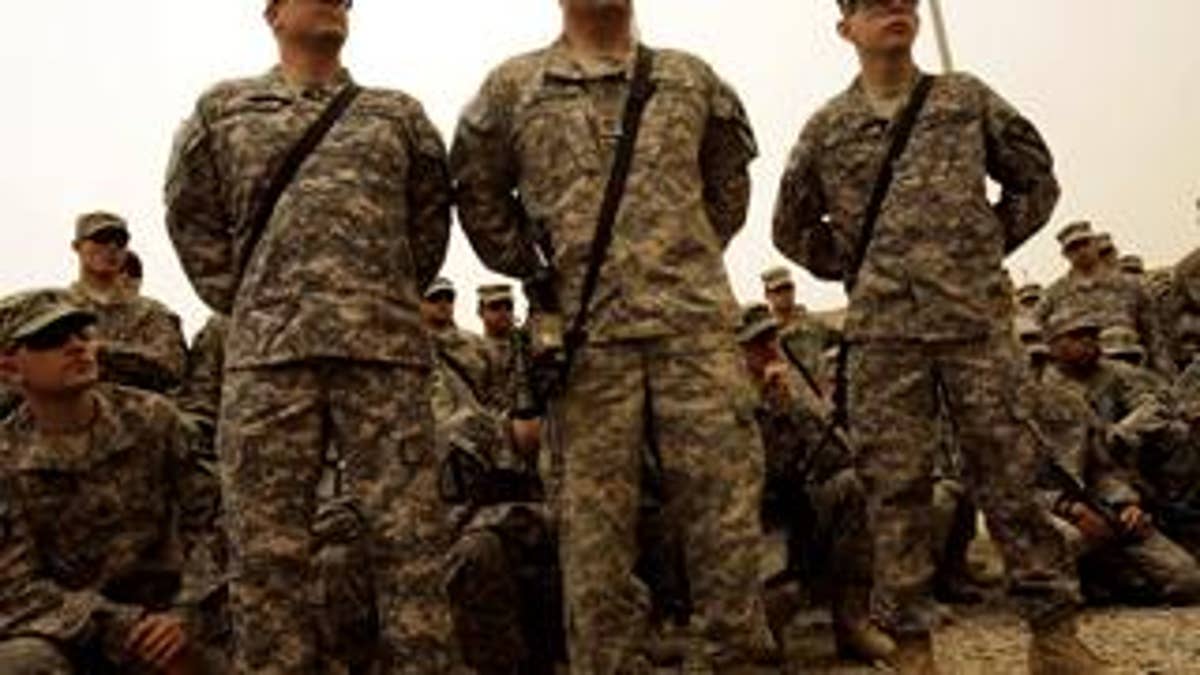
After six years and more than 4,000 U.S. casualties, the Iraq war has at last moved -- judging by its virtual disappearance from the national conversation -- into America's outbox of national problems.
A USA Today/Gallup poll taken March 18 finds 51 percent of Americans give a positive assessment of the Iraq war, up from 28 percent in January 2007. And 64 percent now believe the United States can win the war, with 42 percent believing it will do so. Both are the best assessments that Gallup has measured since June 2006.
Such opinions lag behind the actual performance on the ground in Iraq. Senior U.S. officials say the Iraqi government has quietly met 17 of 18 political, economic, and security benchmarks set for it more than two years ago.
And by almost any measure -- U.S. and Iraqi casualties, political vibrancy, economic activity -- the "surge" announced by President Bush in January 2007 has worked to produce a safer, more stable Iraq.
Nevertheless, top officials at the Pentagon will not say outright that the war has been won. Maj. Gen. John Kelly, until a month ago the commander of Multinational Forces Iraq in the western part of the country, told FOX News that victory is "right around the corner."
"We are winning, for sure," he said. But Kelly also recoiled from the word "victory" because of the lopsided nature of asymmetric warfare, in which a superior armed force can be made to appear as though it is losing a conflict due to a single bloody event orchestrated by a handful of terrorists.
"I hesitate to use the word 'win' or 'won' against an ideology," Kelly added in an interview from his new base at Camp Pendleton. "I mean, forty years from now, it's entirely possible that some extremist al-Qaeda type will set off a bomb in central Baghdad or, for that matter, fly another plane into the Sears Tower in Chicago.
"But I would say you could probably declare victory -- if you really felt compelled to do that -- at the point at which the Iraqi security forces, army and police, are shouldering the entire burden and U.S. combat forces are out of the country because they're no longer needed," he said.
Defense Secretary Robert Gates told FOX News America's fighting men and women require no formal declaration of victory. "I don't think they need to be told that they've been successful; they know it," Gates said during a Feb. 27 visit with President Obama to Camp LeJeune, N.C.
"There's reluctance on the part of the secretary and the people who work in this building to use terms such as 'winning' or 'won,'" added Pentagon spokesman Geoff Morrell this week. "That's just not how we choose to characterize the situation on the ground. That doesn't mean that we are -- that we are deniers of the fact that there is enormous progress being made; but there's still more work to be done."
In the immediate aftermath of the American-led invasion of Iraq, which began with an aerial bombing campaign over Baghdad on March 19, 2003, things seemed to be going the coalition's way. The swift success of the early phase of the campaign -- the Third Infantry Division's largely unimpeded roll into Baghdad, followed by the ouster of Saddam Hussein and his top echelon -- fed the mistaken belief that "regime change," in this case at least, could be accomplished neatly and cleanly, and that Iraqi oil could quickly start flowing again to subsidize the nation's wealth.
But the February 2006 bombing of the al-Askari Mosque, one of the holiest Shi'ite sites in Iraq, ushered in a new and particularly fierce period of sectarian clashes pitting Sunni Muslim Iraqis against Shi'ia. Arab hatred of American occupiers and a number of miscalculations by coalition commanders and American leaders on the ground in Iraq also conspired to produce dire setbacks for the American cause -- and even led Senate Majority Leader Harry Reid, D-Nev., to declare the war "lost" in April 2007.
The "surge" of U.S. troops into Iraq over the last two years -- overseen by General David Petraeus, now the commander of Central Command -- turned all that around. But some critics of the war remain, for their own reasons, reluctant to acknowledge the improved conditions on the ground.
House Speaker Nancy Pelosi, D-Calif., in noting the sixth anniversary of the war, made no mention of the singular accomplishment that the bloodshed produced -- namely, the establishment of a functioning democracy and Arab ally in the heart of the Middle East -- and instead focused on the conflict's coming conclusion.
"Here we are, six years later, in Iraq," Pelosi said at the start of a Capitol Hill news conference. "The good news is that our new president has called for an end to the war and a timetable to bring our troops out of Iraq."
President Obama himself congratulated American troops at Camp Lejeune on Feb. 27, saying they had achieved their central objectives: removing the Hussein regime and enabling the formation of a sovereign government in Baghdad.
"You got the job done," the president said twice. But in his remarks at the base, Obama also explained why "victory" -- a word he never used that day -- remains out of reach. "Violence will continue to be a part of life in Iraq. Too many fundamental political questions about Iraq's future remain unresolved. Too many Iraqis are still displaced or destitute," he said.
Ultimately, definitions of an American "victory" in Iraq will differ. What will remain clear to all, however, are the displays of honor and heroism by the U.S. forces who fought and died in Iraq.












































